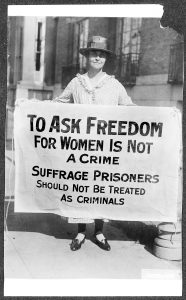
“Men are staying in church, while the women are leaving at a remarkable clip,” observed a 2024 New York Times article about Generation Z Christians (born from the 1990s-2010s). A “theology of complementarianism” divides men and women into “separate roles in marriage and church leadership.” In addition, patriarchal churches are becoming more political, even as Gen Z men and women are “on divergent trajectories in almost every facet of their lives, including education, sexuality and spirituality.”
A recent study by the evangelical research firm Barna Group offered an insider perspective. A new “generation of men [are] wrestling with purpose, identity, and belonging and many are turning to faith for answers,” observed Barna CEO David Kinnaman. Although Kinnaman celebrated the presence of more men in church pews, he barely noted the declining presence of women.
Other data offer broader perspective. Since peaking in 2011, male college enrollment is down more than a million, compared to about 200,000 fewer women. Men bypassing college largely opt for jobs requiring “physical strain [driving and construction jobs primarily] while women, having traditionally shouldered more social and nurturing duties, are leaning on high EQ [emotional intelligence] jobs [customer service and health care foremost],” a Fortune article observed earlier this year.
More likely to worship in politicized churches where emotionally intelligent women are increasingly absent, many less-educated, physically oriented young Christian men harbor anger. Pointing to congregational gender tensions, political scientists Paul A. Djupe and Brooklyn Walker, in a Religion in Public article (“The Reactionary Religious Reengagement of Young Men”), argue that evangelical Christianity is increasingly amplified within a “right-leaning media ecosystem” catering to the grievances of “disenchanted young men.”
Alienation and anger lend a toxic dimension to a search for meaning. Within many white evangelical congregations, men — taught that they were “created to be masculine” — feel called by God to rescue American masculinity from “a feminized culture.” Many, Djupe and Walker summarize, are taught “they are under siege by evil, demonic forces” and embrace “stronger Christian nationalist worldviews” that seek “to exert control over the nation.”
What does control over the nation look like? A 2024 Pew Research study revealed that half of U.S. adults “think the Bible should have at least some influence in U.S. laws,” while 28% believe “that if the Bible conflicts with the will of the people, the Bible should have more sway.” In particular, Christian Nationalists have biblical patriarchy in mind — an anciently ordered social system structured upon unquestioned male dominance — and an ally in the White House.
Rita Smith, former director of a national domestic violence organization and an expert on gender-based violence prevention, recently warned that “Trump’s America is normalizing violence against women.” Writing in a Ms. article, Smith observed that “Trump’s presidency has turned the fight against violence toward women into a political battleground — protecting abusers, punishing survivors and dismantling decades of progress.”
Violence against women, Smith writes, has “become a deliberate political strategy. Powerful men accused of abuse are actively protected and celebrated by the Trump administration, while survivors and those who stand up for them are punished and silenced.”
Forced suppression of women is increasingly codified into law. In 2022’s Dobbs v. Jackson decision that abolished the nationwide right to abortion, the Christian Nationalist-led U.S. Supreme Court dismissed women’s control over their own bodies, legally elevating biblical patriarchy. Many Christian Nationalist-led states, primarily in the South, quickly enacted laws criminalizing abortion. Based on abortion restrictions and other anti-women policies, the National Organization for Women lists seven of the former Confederate States of America among the top eight “Worst states for women to live in.”
Highly influential Christian Nationalist pastor and theologian Doug Wilson – hailing from the town of Moscow, Idaho, and a fan of the former Confederate States of America – is an ideological mentor for many angry, young, white Christian Nationalists, including U.S. Defense Secretary Pete Hegseth. Wilson has a history of theologizing male sexual dominion over women. “[H]owever we try, the sexual act cannot be made into an egalitarian pleasuring party,” he declared in 2012. “A man penetrates, conquers, colonizes, plants. A woman receives, surrenders, accepts … True authority and true submission are therefore an erotic necessity.”
His insistence that men must exercise dominion over women extends to the ballot box. In an August CNN interview, Wilson declared that women should not have the right to vote. Following the interview, Hegseth’s Wilson-affiliated Tennessee church called for the abolishment of the 19th Amendment and a return to patriarchy in society and the federal government.
Mirroring Wilson in touting Lost Cause racist mythology and seeking the abolishment of feminism and secularism (the two perceived to exist hand-in-hand) is the influential PragerU, an extremist media company. The former Confederate states of Florida, Louisiana, Texas and South Carolina — alongside other states, including Wilson’s Idaho — are welcoming PragerU’s white Christian Nationalist ideology into public school classrooms.

Backed by upwards of $100 million dollars and 10 billion social media views, PragerU “is a central node in the production of misinformation and radicalization in the United States today,” write Robert Dickinson and Tom Cowin in the journal Patterns of Prejudice. The company’s disingenuous messaging includes assertions that the Jan. 6, 2021 Christian Nationalist domestic insurrection was essentially benign — despite some of the terrorists having cheered the bloody insurrection as a second American Civil War.
The Trump administration, having withdrawn federal funding from the Public Broadcasting Service, has turned to PragerU to indoctrinate America’s children and young adults in extremism. As Dickinson and Cowin note with alarm, PragerU intersects a larger white supremacist ecosphere with a shared, central “emphasis on building a white, Christian male identity group.”
Politicized, patriarchal religion is on the cusp of forcefully imposing “authoritarian theocracy” upon the U.S., educators Esther Prins (Pennsylvania State University) and Davin J. Carr-Chellman (University of Dayton) warn in the Summer 2025 issue of New Directions for Adult and Continuing Education. Calling for multi-faceted resistance, they argue that opposition must be mounted “in various sites and at different scales, such as personal interactions, classrooms, churches, community groups and organizations, higher education, and collective movements.”
Resistance must be broad and deep. “It will take all the courage, creativity, and commitment we can muster to stem the tide and alleviate the harm of White Christian nationalism,” Prins and Carr-Chellman insist. “As educators, researchers, and citizens, we have a crucial role to play in educating ourselves and others about WCN [white Christian Nationalism] and in acting collectively to create just, democratic classrooms, institutions, and communities that promote human flourishing.”
In fact, more and more Americans are resisting. In Texas, according to a recent NBC News story, creative “quiet acts of defiance” in local communities are emerging against a state law mandating the posting of the Ten Commandments in all elementary and secondary public schools. In addition to the families represented by AU and allies who are challenging the law in court, some teachers are displaying posters of other religious belief systems alongside the Ten Commandments. Others are distributing buttons displaying the First Amendment’s opening wording, “Congress shall make no law respecting an establishment of religion.”
“I plan to be as maliciously compliant as possible so that all of my students, regardless of religion, or lack thereof, feel valued, comfortable and seen,” announced one rural Texas teacher.
Other forms of resistance are also growing.
Within recent months, a number of Christian denominations have officially voiced opposition to white Christian Nationalism, according to the Global Project Against Hate and Extremism.
In courtrooms across America, record numbers of lawsuits state and federal — including many filed by Americans United — are effectively countering white Christian Nationalist assaults on Americans’ religious freedoms. Most recently, on Sept. 15, the Oklahoma Supreme Court sided with AU in issuing a hold on Superintendent of Public Instruction Ryan Walters’ proposed social studies standards that would promote white Christian Nationalism in the state’s public schools.
Studies indicate that personal connections are also important. Prins argues that relationships with Christian Nationalist adherents “are crucial for deradicalization and unlearning,” and “discerning and addressing” adherents “core needs is more effective” than personal confrontation.
“[B]rief interactions, sustained relationships, and compassionate conversations” with Christian Nationalists “can help dispel stereotypes, sow doubt, and provide alternative viewpoints,” Prin summarizes. Authentic dialogue often leads adherents to question — and, in time, abandon — “authoritarian, hierarchical, patriarchal” ideology.
Everyone, in short, has a role to play in resisting patriarchal, white Christian Nationalism.